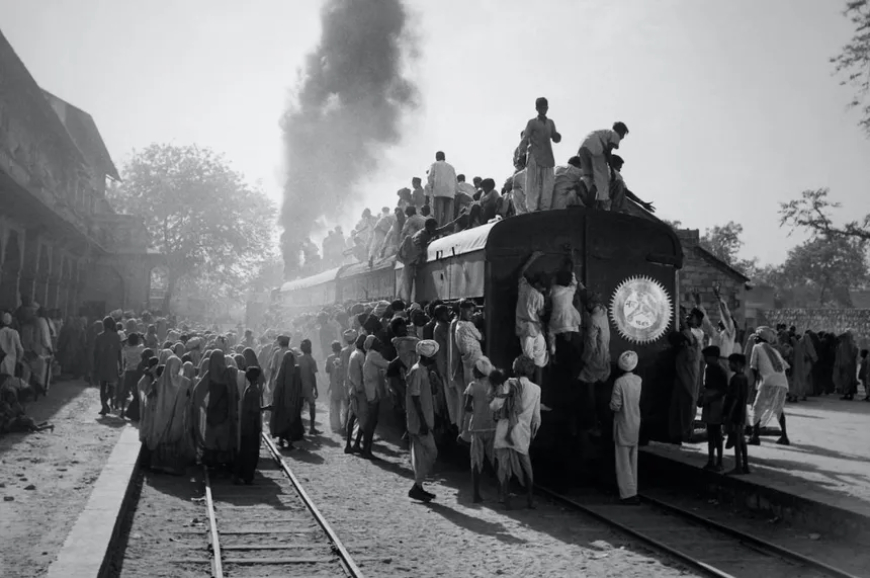The Libertarian Approach to Solving India's Rail Challenges
Transforming Indian Railways through libertarian principles could solve longstanding issues like inefficiency, safety concerns, and financial losses. By advocating for privatization, competition, and private investment, the Libertarian Party of India envisions a more efficient, safe, and financially viable railway system. This article explores how these principles can revolutionize rail travel in India.

Introduction

India's railway system is one of the world's largest, serving millions daily. However, it's plagued by inefficiency, safety concerns, overcrowding, and financial losses. The Libertarian Party of India, advocating minimal government intervention and free markets, proposes solutions to transform the railways. Here’s how libertarian principles can address these challenges.
Current Situation of Indian Railways

Revitalizing Indian Railways: How Libertarian Principles Can Transform the System
India’s railways face numerous challenges, including outdated infrastructure, frequent accidents, financial difficulties, overcrowding, and delayed trains. These issues are compounded by a lack of modernization and bureaucratic inefficiencies, resulting in poor service and widespread dissatisfaction.
Libertarian Principles and Railways
Libertarianism advocates for minimal government intervention, emphasizing free markets and individual liberty. Applying these principles to the railway system could involve privatization, competition, and innovation, leading to significant improvements.
Privatization and Competition
Privatizing Indian Railways could drive efficiency and enhance service quality. Private companies, motivated by profit, are likely to innovate and improve services. Introducing competition within the railway sector can lead to cost-effective and customer-oriented solutions. Examples from countries like Japan and the UK, where privatized rail systems have thrived, highlight the potential benefits of such an approach.
Infrastructure Development
Private investment is crucial for modernizing railway infrastructure. Public-private partnerships (PPPs) can play a key role in upgrading tracks, stations, and signaling systems, thereby enhancing passenger experience and contributing to economic growth. Leveraging private capital and expertise ensures that railways keep pace with technological advancements.
Safety and Maintenance
Privatized railway companies, driven by the need to maintain their reputation and profitability, are likely to implement stringent safety standards and regular maintenance. This approach can significantly reduce accidents and improve overall safety, ensuring a reliable and secure travel experience for passengers.
Financial Viability and Profitability
Addressing financial losses is essential for the sustainability of the railways. A libertarian approach involves reducing subsidies and implementing fair pricing strategies. Privatized railways, operating on market principles, can balance cost and quality while remaining financially viable. This strategy can lead to sustainable growth and development, minimizing the financial burden on the government.
Case Studies and Global Examples
Several countries have successfully applied libertarian principles to their railway systems. Japan’s privatized railways are renowned for their efficiency and punctuality, while the UK’s rail system has seen improved services and customer satisfaction. India can draw valuable lessons from these examples, adapting successful strategies to its unique context.
Conclusion
Revamping Indian Railways through libertarian policies promises to enhance efficiency, safety, and financial health. Embracing privatization, fostering competition, and leveraging private investment could revolutionize the rail system, providing a better experience for passengers and stimulating economic growth. It’s time for policymakers and the public to consider libertarian solutions for a brighter future in rail travel.
FAQs
1. What are the main problems with the current Indian railway system? The primary issues include inefficiency, safety concerns, overcrowding, financial losses, and outdated infrastructure.
2. How can privatization improve Indian Railways? Privatization can drive efficiency, innovation, and better service quality by introducing competition and profit motives, leading to cost-effective and customer-friendly solutions.
3. What role will private companies play in railway safety and maintenance? Private companies, motivated by profitability and reputation, will implement strict safety standards and regular maintenance schedules, significantly reducing accidents and improving overall safety.
4. How can libertarian principles make the railway system financially viable? By reducing subsidies, ensuring fair pricing, and operating on market principles, privatized railways can balance cost and quality while remaining financially viable, leading to sustainable growth.
5. Are there examples of successful railway privatization in other countries? Yes, countries like Japan and the UK have successfully implemented libertarian principles in their railway systems, resulting in improved efficiency, punctuality, and customer satisfaction.
What's Your Reaction?



















































